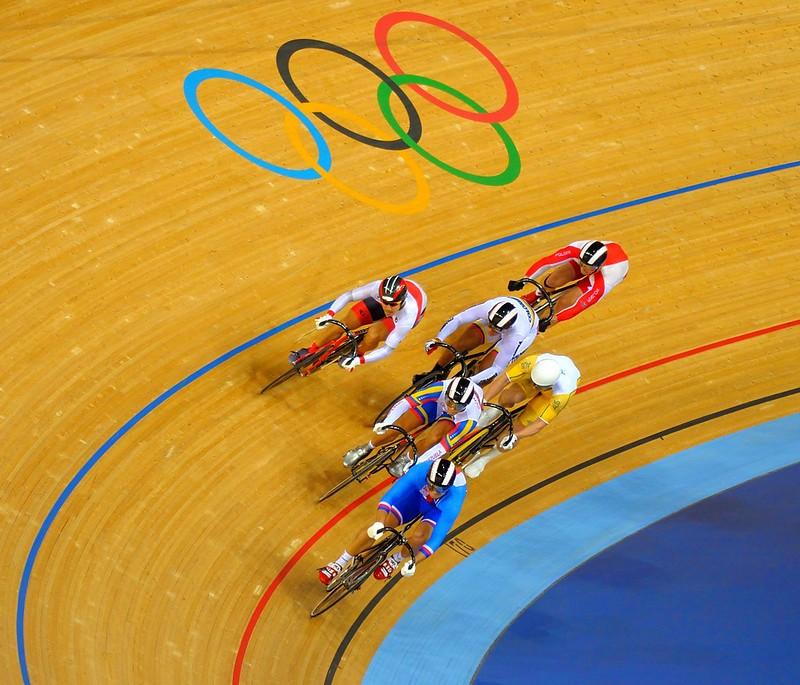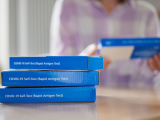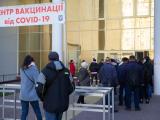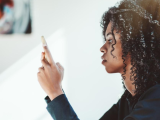A group of infectious disease experts yesterday raised concerns about several gaps in the International Olympic Committee's (IOC's) COVID-19 protocols, and they called on the World Health Organization (WHO) to convene an emergency committee to weigh the risks and make recommendations for the Summer Olympic and Paralympic Games in Tokyo.
If a WHO emergency committee takes up the issue, it would mark the second time in recent years that international experts have tackled the safety of the Summer Games. In 2016, a WHO emergency committee weighed in on the Zika threat to the Summer Olympics in Rio de Janeiro, saying that the event—by comparison, a relatively modest mosquito-borne outbreak—posed a very low threat.
In a New England Journal of Medicine perspective piece, the group, which includes experts in respiratory protection and occupational health, said Japanese officials postponed the event slated for last summer, hoping that the virus would be controlled and that vaccine stocks would be plentiful. They point out, however, that Japan is under a state of emergency, and in most countries, the percentage of people vaccinated is low, including in Japan, where only 5% are immunized.
The experts are from the University of Minnesota, the Icahn School of Medicine at Mount Sinai, and the University of California, San Francisco (UCSF).
IOC officials have vowed to press forward with the Games, scheduled to begin on Jul 23. In contrast to most doctors' groups, which are urging organizers to cancel the event, partly due to concerns about already overburdened health systems, this group argues that there is every chance the Games can go ahead safely—if the right measures are put in place immediately.
Michael T. Osterholm, PhD, MPH, a coauthor who directs the University of Minnesota's Center for Infectious Disease Research and Policy, publisher of CIDRAP News, said experts would be worried even if Japan wasn't experiencing a surge, and that the Games taking place in a pandemic setting has all the aspects of a superspreading event.
"What we're urging are procedures and practices to reduce spread," said Osterholm. He is one of the scientists who advised the National Football League on its COVID prevention and surveillance system, which won praise for minimizing virus exposure at a time when US COVID levels were increasing. Another author, Annie Sparrow, MD, MPH, advised the Women's National Basketball Association, which completed 87 games without a single COVID-19 case.
IOC plan light on risk stratification, vulnerable groups
Though several countries are vaccinating their athletes, most aren't yet vaccinating adolescents, meaning that few teenage athletes will be immunized, the group wrote. And without daily or twice-daily testing, they pose a risk of carrying the virus to their more than 200 home countries.
The Summer Olympics are slated to bring together about 11,000 athletes and 4,000 support staff from more than 200 nations. One month later, the Paralympics will play host to 5,000 athletes, plus support staff.
The authors who reviewed the IOC's COVID playbooks, developed with input from several groups, including the WHO and experts from Japan, said the IOC isn't following the best science, putting the risk-assessment ball in the athletes' own court. The IOC's measures don't distinguish the different risk levels or the limitations of measures such as temperature screenings and face coverings.
They also said the IOC hasn't incorporated lessons learned from successes and challenges of other sporting events. For example, they wrote that US professional leagues held successful seasons that hinged on rigorous protocols that incorporated what's known about airborne spread, asymptomatic spread, and close contacts.
And though most athletes are at low risk for serious complications, Paralympic athletes could be a higher-risk category, and the IOC's plan doesn't adequately protect the thousands of nonathletes, such as trainers, officials, hotel employees, drivers, and volunteers that are part of holding the event.
The experts said the IOC should break down events into low, moderate, and high risk based on factors that relate to aerosol spread of the virus, taking into account the length of time spent in indoor venues, the type of activity that would generate aerosols, and facility ventilation. They added that the IOC's risk assessments should also cover noncompetition space, such as buses, cafeterias, and hotels.
Fixing the game plan is possible
Canceling the games would be the safest option, but the experts don't go that far, instead saying the Olympics are one of the few events that could bring the world together at a difficult time. "For us to connect safely, we believe urgent action is needed for these Olympic Games to proceed," they wrote. So far, the WHO has not signaled if it will convene an Olympics emergency committee.
Sparrow, a pediatric critical care doctor and global health expert based at Icahn School of Medicine at Mount Sinai, said, "This is not rocket science; this is medical science. We can fix these Games in time." The IOC's playbook seems to assign much of the risk assessment and mitigation to athletes at a time when they are focused on their performance and winning, she said.
The article's other coauthors are Lisa M. Brosseau, ScD, a research consultant who is an industrial hygienist and respiratory protection expert at CIDRAP, and Robert J. Harrison, MD, MPH, an occupational and environmental health expert at UCSF.
When compared with the Rio Zika Olympics situation, Sparrow said, "This is a different ballgame. We have an airborne virus, and people aren't fully vaccinated."
With no spectators, Olympic planners should have enough hotel capacity to ensure that athletes don't need to share rooms, and there are ways to make sharing meals less risky, such as picking up meals or eating outdoors, she said.
For contact tracing, wearables such as Kinexon wristbands for monitoring are a much better choice than smartphones, Sparrow said. "Show me one athlete who will carry a phone—smart or otherwise—while doing the 200 [meter dash]?" she asked. "Is Simone Biles going to stick it in a pocket as she vaults? And what about all the surrounding staff—how will they know if they are exposed?"
She emphasized that the commentary authors aren't calling for the Games to be canceled and that pooling global resources and expertise could ensure that they take place safely. "This is a massive chance to experience global solidarity, not just pay lip service to it."




















